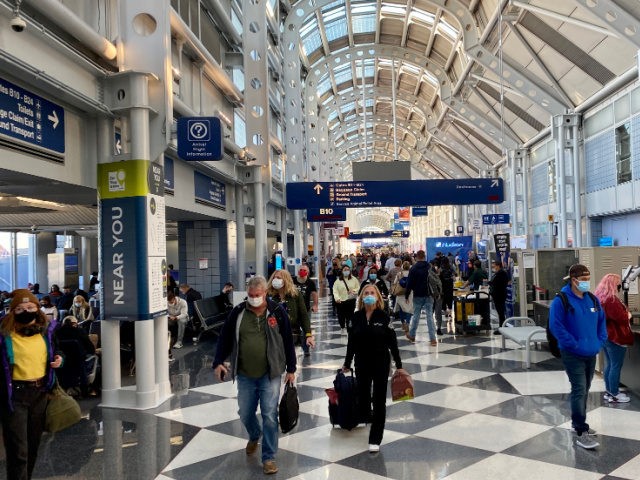Fewer Americans are identifying the Chinese coronavirus as the most important problem facing the United States, a Gallup poll released Wednesday found.
While the survey found the virus remaining the top problem, there has been a relatively steady decline in the percentage of Americans who identify it as the most important problem.
Currently, 20 percent name the coronavirus the most important issue, down from the 45 percent who said the same one year ago, in April 2020. In February, the percentage stood at 26 percent.
In March, 25 percent of respondents identified “coronavirus/diseases” as the “most important problem facing this country today,” followed by “the government” (20 percent), and immigration, race relations, and the economy, all of which garnered 8 percent. The coronavirus remained the top issue in April but dipped five points to 20 percent, followed by the government and immigration which garnered 14 percent, race relations which saw 12 percent, and the economy which saw 4 percent.
According to Gallup, the changes are “largely reflective of recent public opinion on these issues,” as Americans are “largely satisfied with the vaccine rollout and are less worried about contracting COVID-19 [coronavirus] than they have been since the beginning of the pandemic.”
However, even though fewer Americans across the board are choosing coronavirus as the most important issue, there is a significant partisan divide when it comes to identifying the top issue facing the country.
One-quarter of Republicans and Republican leaners, for example, identify immigration as the top issue, followed by 20 percent who say it is the government and 13 percent who say it is the coronavirus. All the while, 27 percent of Democrats and Democrat leaners chose the coronavirus as the most important issue facing the country, followed by race relations (19 percent), and the government and unifying the country, both of which garnered 7 percent.
The survey, taken April 1-21, 2021 among 961 U.S. adults, has a margin of error of +/- 4 percent.
The survey comes as the U.S. continues with vaccine rollout, fully vaccinating over 96 million people, or 29.1 percent of the population, according to the Centers for Disease Control and Prevention’s (CDC) April 27 data. However, U.S. health officials still will not say when Americans can truly return to a state of pre-pandemic normalcy, with the CDC continuing to recommend vaccinated people to wear masks in certain social settings.

COMMENTS
Please let us know if you're having issues with commenting.